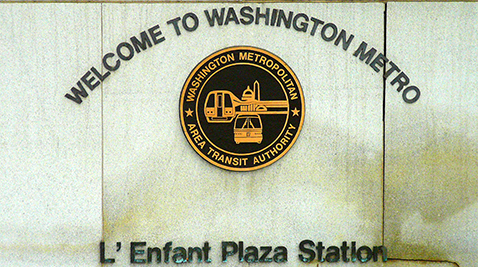WASHINGTON–The National Transportation Safety Board issued urgent recommendations Wednesday for Metro to improve its ventilation procedures in the wake of the deadly smoke incident in the tunnel at L’Enfant Plaza in January.
The NTSB’s Acting Chairman, Christopher A. Hart, briefed the Metropolitan Washington Council of Governments (COG) board of directors on the recommendations and the ongoing investigation of the incident that killed one person, left 86 others hospitalized and caused massive delays for evening trains.
When the incident occurred, ventilation fans pulled the smoke through the tunnel into the stopped train rather than pushing the smoke out, Hart said.
“I am shocked at the findings of the NTSB’s investigation of the deadly Yellow Line smoke incident on Metro,” Sen. Barbara Mikulski (D) said in a statement. “Its findings highlight basic failures in Metro’s equipment that may have contributed to the severity of the incident.”
The NTSB made its recommendations to the Federal Transit Administration, the Washington Metropolitan Area Transit Authority and the American Public Transportation Association.
Hart had three major suggestions for transit agencies with tunnels: check the condition of the ventilation system, develop procedures to address smoke in tunnels and train personnel to follow those procedures.
“As the NTSB continues its full investigation and the FTA conducts its safety management inspection, WMATA must ensure that its staff are fully trained and prepared to respond to any future incidents,” Rep. Chris Van Hollen, D-Kensington, said in a statement.
“The NTSB’s urgent safety recommendations are critical to making sure we prevent another horrible accident on Metro and elsewhere in the country,” Mikulski said. “I expect swift action and accountability from Metro in implementation of these recommendations.”
The NTSB said in a preliminary report that an electrical malfunction caused a Yellow Line Metro train and the tunnel just south of the L’Enfant Plaza Metro station to fill with smoke, trapping riders the afternoon of Jan. 12.
Radio problems disrupted communications between firefighters in the station responding to the situation and commanders above ground.
The incident resulted in the death of Carol Glover, 61, who died of acute respiratory failure due to smoke exposure, according to the District’s Office of the Chief Medical Examiner.
Glover’s family is suing Metro for $50 million, claiming negligence and wrongful death. They join about 80 other people who are suing Metro for the L’Enfant incident.
“Every day we need to do a better job on communication, a better job on focusing on safety, and if we do that in a systematic way … things will get better,” said Jack Requa, WMATA’s interim director.
Mikulski called on the COG Tuesday to complete a regional work plan to train emergency responders in evacuation situations on the Metro system. Mikulski has been a big proponent for improved Metro safety protocol, and she has advocated for more transparency in Metro’s improvements and preventative action.
The COG Fire Chiefs Committee issued a statement at Wednesday’s meeting, which laid out steps taken during the past 10 days, including requests of additional on-site and web-based training opportunities from WMATA.
The Federal Transit Administration plans to conduct a review of Metro’s safety programs beginning March 2.

